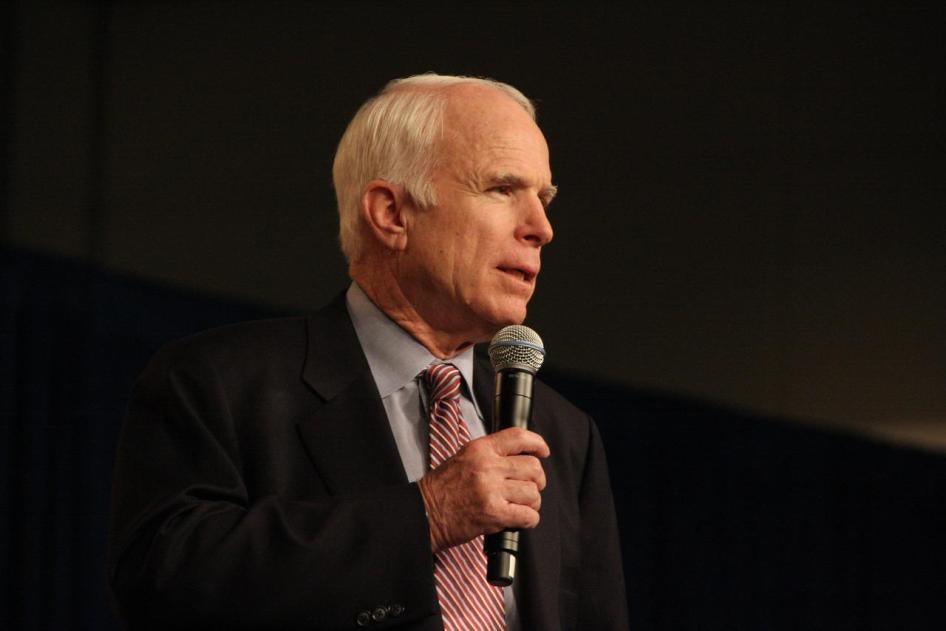John S. McCain III, the senior Republican senator from Arizona who died of brain cancer on August 25, 2018, left behind a strong record of commitment to the bipartisan promotion and defense of human rights in the United States and abroad. He was 81.
“Senator McCain was for decades a compassionate voice for US foreign and national security policy,” said Sarah Margon, Washington director at Human Rights Watch. “He was never shy about his commitment to basic rights and frequently confronted global leaders directly about their repression and abuse.”
McCain’s experience as a prisoner of war for five years during the Vietnam War informed his strong views against the use of torture. “I know from personal experience that the abuse of prisoners will produce more bad than good intelligence,” McCain said, speaking on the Senate floor in support of releasing a groundbreaking Senate Intelligence Committee report condemning the US use of torture. “Most of all, I know the use of torture compromises that which most distinguishes us from our enemies, our belief that all people, even captured enemies, possess basic human rights.”
McCain was instrumental in passing legislation strengthening existing bans on torture, such as the 2005 Detainee Treatment Act, and other anti-torture legislation, and spoke out frequently against torture’s use.
McCain and his staff championed a number of important human rights issues, including restricting aid to authoritarian governments, such as Egypt and Bahrain; authorizing targeted sanctions on abusive foreign officials; and pressing for accountability in support of civilians under attack in conflict zones, notably in Syria and Burma.
McCain worked tirelessly to help improve US foreign and national security policy to ensure it addressed both interests and values – a theme that very much guided his own approach to policy. His support for human rights were central to his world view and an inspiration to many activists around the world. There were certainly times when McCain didn’t live up to his own aspirations. Nonetheless, he was often a dignified voice for those who were unjustly detained, abused, tortured, or even just silenced for speaking out. His willingness to meet with political dissidents, civil society activists, and even victims of US torture were all indicative of his deep commitment to human rights and his belief that these universal rights should be reflected in US foreign and national security policy.
Human Rights Watch sends its deepest condolences to the McCain family, as well as current and former members of the senator’s staff.








